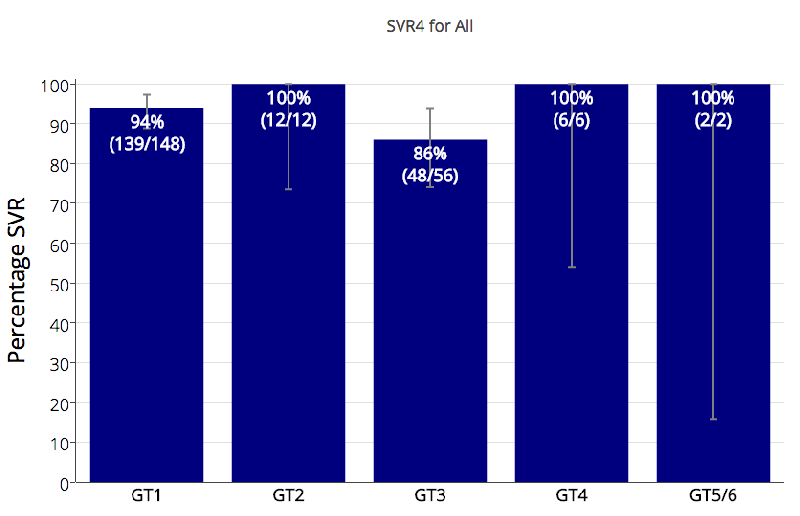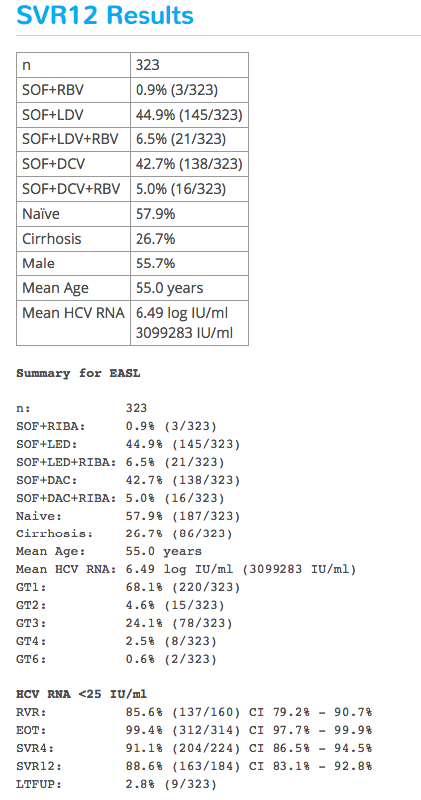There has been quite a bit of talk about relapse recently across all forums. To me this was entirely expected as with Indian generics appearing in mid December, Jan-Mar was a busy treatment time with SVR12 success and failures starting to appear in bulk in July. Online conversations have a selection bias in that cured patients move on, leaving patients with relapse behind. You can prove that to yourself here by using the forum search tool and selecting a term like "treatment" and then "posts older than 6 months ago" and sorted by views.
fixhepc.com/forum/search.html?query=trea...s&childforums=1&ids=
Here you will see a lot of names you don't recognise, and some that you will. Many of these patients don't post anymore because they have been cured of HCV so our forum is no longer relevant. It's sad to see people go, but I'm happy to know HCV forums have become irrelevant in their lives.
We are active following 448 consecutive patients for reporting purposes. We are following more, but this group of 448 represents a real world sample, chosen before any results were known to ensure it would be representative.
The numbers are now high enough that not a lot of change will be seen. The little grey bars at the top of the graph indicate the 95% confidence intervals. As you can see the more results there are the narrower this range (shorter bar) and it is 20:1 that the "real" result falls inside this range.
So we can see that SVR rates in GT1 are in the mid nineties, and for GT3 in the mid eighties. 323/448 are now at or past the SVR12 point with 50% (224/448) now having SVR4 (or more) results to hand.
What we can also see is that SVR4 is 96.4% durable through to SVR12 with the overall average SVR4 slipping from 91.1% (204/224) to 88.6% (163/184) so if you get SVR4 there is only a 3.6% chance you won't get SVR12 (the odds are now 27:1 in your favour).
Finally the rates of treatment experience and cirrhosis are high compared to manufacturer trials, so there is a degree of negative selection bias. In GT3 we have 38% cirrhosis and 45% past treatment experience (in the easy to treat PEG/Riba GT) so it's not entirely unexpected that we are not seeing the 90% suggested by the originator trials (the easy to cure patients got cured by PEG/Riba). A long term observation in medicine is that real world results are always a bit worse than what the trials suggest.
One of the really good reasons not to be involved in HCV treatment was the 100% certainty that SVR rates of < 100% predict some patients will fail. Individual relapses are heartbreaking, and to be frank I admire the stamina and fortitude of those doctors who had to treat using PEG/Riba given the much lower SVR rates, but to my eyes the rebels have been well served by generics.


